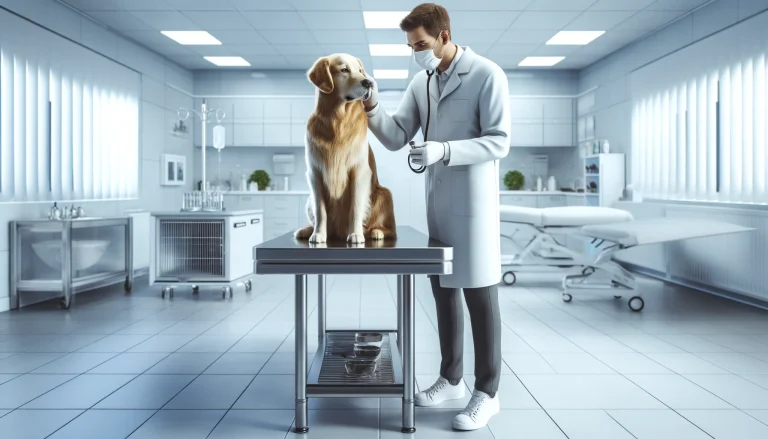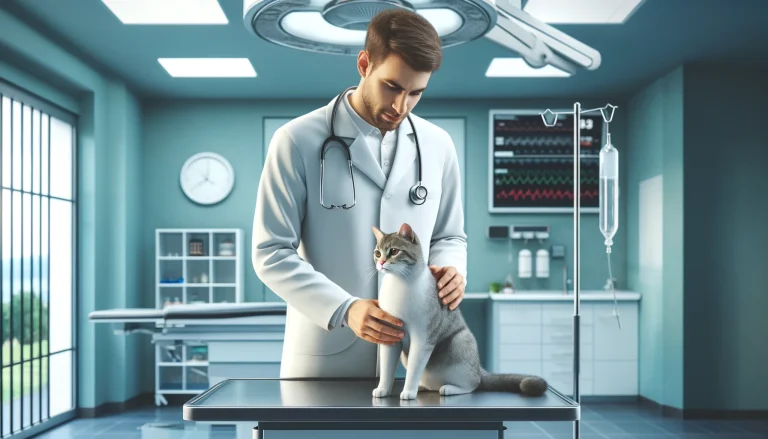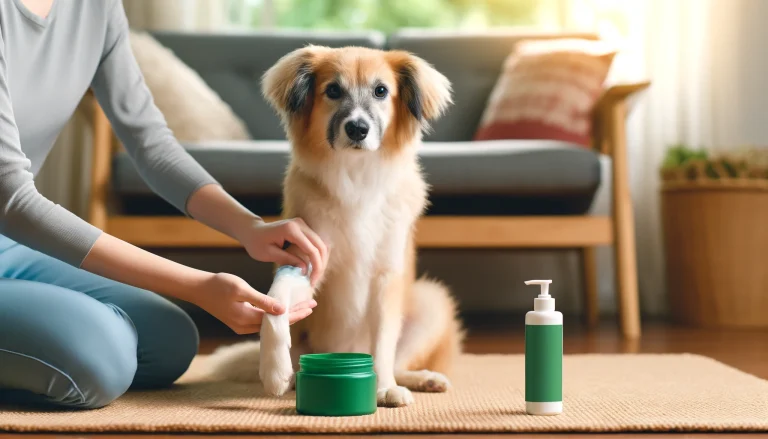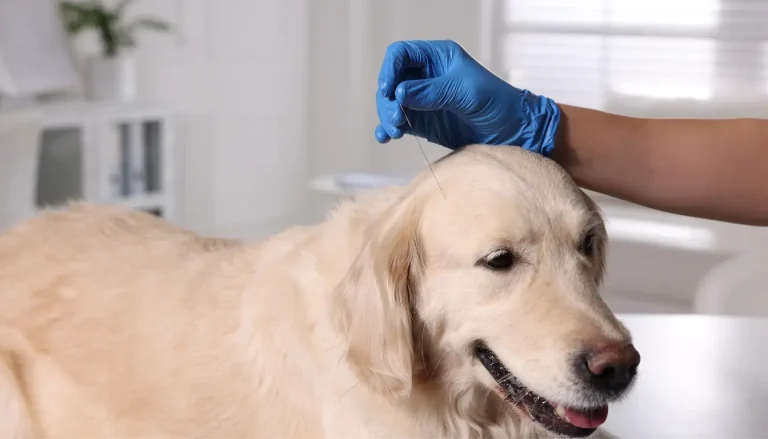The Value of Preventive Pet Care
As a pet owner, your primary goal is to ensure a long, healthy, and happy life for your furry friend. However, achieving this goal doesn’t just rest on love and affection; it hinges significantly on effective preventive pet care. This proactive approach is pivotal in safeguarding your pet from various health issues before they develop into serious concerns.
Preventive pet care encompasses more than just the occasional visit to the vet when your pet seems under the weather. It involves regular check-ups, vaccinations, proper nutrition, and other routine health measures that can significantly decrease the potential for future medical emergencies.
The philosophy behind preventive care is simple: it’s better, easier, and often cheaper to prevent problems than to treat them after they occur.
This guide dives deep into the essential elements of preventive pet care, outlining not only why it’s crucial but how you can seamlessly integrate these practices into your daily routine. By prioritizing preventative measures, you’re not just enhancing your pet’s current quality of life; you’re extending it.
Let’s explore how regular health checks, vaccinations, and consistent care routines can keep your pet thriving at every stage of their life.

Understanding Preventive Care: What It Includes
Preventive care for pets is an all-encompassing approach aimed at maintaining their overall health by preventing disease before it starts. This proactive strategy is essential to ensure that pets live not only longer but healthier lives. Preventive care isn’t just a component of responsible pet ownership—it’s the backbone of it.
Definition of Preventive Care
At its core, preventive care involves regular health checks and routine practices that identify and mitigate potential health risks before they develop into significant problems. This approach is rooted in the philosophy that an ounce of prevention is worth a pound of cure. By catching issues early or preventing them altogether, pet owners can save on costly treatments down the line and spare their pets from unnecessary discomfort.
Key Components of Preventive Care
- Vaccinations: Vaccines are crucial for protecting pets from various infectious diseases. They prepare a pet’s immune system to fend off attacks from specific diseases, keeping them safe from potentially life-threatening illnesses.
- Regular Exams: Annual or bi-annual veterinary exams are pivotal in preventive care. These check-ups allow veterinarians to conduct thorough physical assessments, update vaccinations, and detect early signs of health issues that might not yet be obvious.
- Parasite Prevention: Parasites, including fleas, ticks, and heartworms, can cause severe health problems and discomfort for pets. Preventive measures include regular use of anti-parasitic treatments that can be administered orally, topically, or through injections.
- Dental Care: Often overlooked, dental health is a vital part of preventive care. Dental issues can lead to significant health problems including infections that can spread to major organs. Routine dental check-ups and cleanings help prevent the buildup of plaque, reduce the risk of periodontal disease, and keep your pet’s mouth healthy.
Understanding and implementing these key components of preventive care, pet owners can greatly enhance their pets’ health and vitality. This not only leads to a happier and more active pet but also reduces the long-term costs associated with veterinary care, making it a wise investment in your pet’s future.
Routine Examinations: The First Line of Defense
Routine veterinary examinations serve as the cornerstone of effective preventive pet care. Regular check-ups are invaluable not only for maintaining your pet’s health but also for fostering a proactive approach to their overall wellness.
Importance of Regular Veterinary Check-Ups
Regular veterinary visits are crucial for early detection and management of potential health issues. These check-ups provide an opportunity for vets to assess the general health of your pet and identify subtle signs of disease that may not be apparent to the owner.
Early detection of conditions such as diabetes, heart disease, and arthritis allows for earlier intervention, which can significantly improve prognosis and manageability. Additionally, these visits keep your pet up-to-date with vaccinations and parasite prevention, integral components of preventive care.
What to Expect During a Pet’s Routine Exam
A routine examination typically includes several key assessments:
- Physical Examination: The vet will check your pet’s body for signs of illness, such as changes in body weight, skin abnormalities, or signs of discomfort. This includes examining the condition of the eyes, ears, and teeth, which can tell a lot about a pet’s overall health.
- Vaccination Status: The vet will review your pet’s medical history and vaccination records to determine if any booster shots are necessary to maintain immunity against common diseases.
- Parasite Checks: Examinations for external parasites like fleas and ticks, as well as internal parasites, are common. Your vet may recommend regular preventative treatments if they aren’t already in place.
- Lab Work: Depending on your pet’s age and health, the vet might also conduct blood tests, urine tests, or fecal exams to screen for various health issues, including kidney function, liver function, and infectious diseases.
- Dental Check: Since dental health is closely tied to overall health, vets often check your pet’s teeth and gums for signs of periodontal disease, which can lead to major health issues if left untreated.
- Diet and Exercise Recommendations: Based on the examination results and your pet’s lifestyle, the vet may offer advice on diet and exercise to help keep your pet at a healthy weight and to prevent obesity-related health problems.
Regular vet visits are an essential defense mechanism against health issues and are critical for keeping your pet healthy throughout all stages of life. By committing to routine examinations, you’re not just ensuring the longevity of your pet but also enhancing their quality of life.
Parasite Prevention: Protecting Your Pets Inside and Out
Parasite prevention is a critical element of preventive pet care. It safeguards not only the health of your pet but also that of your household, as some parasites can be transmitted to humans. Effective management of parasites is crucial for maintaining the long-term health and well-being of your pets.
Common Parasites in Pets
- Fleas: Fleas are one of the most common external parasites that affect pets. They can cause severe itching, allergies, and discomfort, as well as transmit tapeworms and other diseases.
- Ticks: Ticks are dangerous as they carry diseases like Lyme disease, Rocky Mountain spotted fever, and several other infections that can severely affect pet health.
- Heartworms: Transmitted by mosquitoes, heartworms are a severe and potentially fatal threat. They reside in the lungs, heart, and associated blood vessels of an infected pet, causing heart failure and severe lung disease.
Effective Strategies for Parasite Prevention
Preventing infestations and infections from these parasites involves a combination of practices:
- Regular Preventative Treatments: Monthly preventatives are highly effective against fleas, ticks, and heartworms. These can be in the form of topical liquids applied to the skin, oral medications, or collars designed to repel and kill parasites.
- Environmental Control: To combat fleas, it is crucial to keep your pet’s environment clean. Regularly wash bedding, vacuum carpets, and treat your home and yard with flea control products.
- Year-Round Protection: While some pet owners choose to treat for parasites seasonally, veterinarians often recommend year-round prevention. Parasites can survive in many environments and climates, and the risk of infection can persist throughout the year.
- Regular Vet Checks: During routine visits, veterinarians can provide specific advice tailored to your pet’s needs and local risks. This might include recommending certain types of preventatives depending on the area’s prevalence of ticks, fleas, or heartworm.
- Education and Awareness: Being informed about the risks and signs of parasite infections can help pet owners act swiftly to mitigate any health issues. Early detection and treatment are vital for preventing serious health complications.
Parasite prevention is an ongoing commitment that plays a significant role in the preventive health care strategy for pets. By implementing these effective strategies, pet owners can protect their pets from the discomfort and danger posed by common parasites, ensuring their pets lead healthier and happier lives.

Dental Care: An Often Overlooked Aspect of Pet Health
Dental health is a vital component of a pet’s overall well-being, yet it often does not receive the attention it deserves. As part of preventive pet care, maintaining good dental hygiene is crucial. Poor dental hygiene can lead to more than just bad breath; it can cause periodontal disease, which may result in serious health complications affecting the heart, liver, and kidneys.
Importance of Dental Health for Pets
Dental disease is one of the most common issues seen in pets, affecting over 80% of dogs and 70% of cats by the age of three. Without proper dental care, plaque and tartar can build up on teeth, leading to gingivitis and eventually periodontal disease. This can cause significant pain, making it difficult for your pet to eat. Additionally, the bacteria from periodontal disease can enter the bloodstream and affect other organs, compounding the health risks.
Tips for Maintaining Your Pet’s Dental Hygiene
- Regular Brushing: Brushing your pet’s teeth is the most effective way to remove plaque and prevent tartar buildup. Ideally, you should brush your pet’s teeth daily, but several times a week can be beneficial too. Use a toothbrush and toothpaste designed specifically for pets, as human toothpaste can be toxic to animals.
- Dental Treats and Toys: Dental chews, treats, and toys designed to reduce plaque and strengthen teeth can be a helpful addition to regular brushing. These products are not only enjoyable for your pet but also provide mechanical abrasion to help keep teeth clean.
- Professional Dental Cleanings: Regular professional cleanings by a veterinarian are essential. These cleanings allow for the removal of tartar and plaque buildup that can’t be brushed away. Your vet can also check for signs of dental disease and address them before they become more serious.
- Diet Considerations: Some pet foods are formulated to help control plaque and tartar buildup. These can be especially useful for pets that are not amenable to brushing. Discuss these options with your veterinarian to find the best choice for your pet’s needs.
- Regular Check-ups: During your pet’s routine health examinations, make sure their dental health is evaluated. Your veterinarian can show you how to brush your pet’s teeth properly and recommend specific products or procedures that might benefit your pet’s dental health.
By prioritizing dental care, you not only enhance your pet’s oral health but also contribute significantly to their overall quality of life. Maintaining clean and healthy teeth can prevent the discomfort and dangers of dental diseases, ensuring your pet remains happy and healthy for years to come.
Nutrition and Exercise: Pillars of Preventive Care
A balanced diet and regular exercise are fundamental to the preventive care regimen for any pet, playing crucial roles in maintaining optimal health and preventing a variety of diseases.
Contributions of Diet and Exercise to Pet Health
A well-balanced diet ensures that pets receive the essential nutrients needed for strong immune systems, healthy skin and coats, and robust energy levels. Coupled with consistent exercise, a proper diet helps manage weight and prevents obesity-related health issues such as diabetes and joint stress. Exercise also aids in mental stimulation, keeping pets both physically fit and mentally sharp.
Tips for Choosing the Right Food and Exercise Routines
- Consult Your Veterinarian: Your vet can provide personalized recommendations based on your pet’s specific dietary needs, considering their age, weight, and health conditions.
- Read Pet Food Labels: Choose high-quality pet foods that list whole meats and minimal by-products to ensure your pet is getting nutritious meals.
- Mix Up Exercise Routines: Incorporate a variety of activities to keep your pet engaged and motivated. This can include walks, fetch, agility training, or interactive toys.
- Monitor Portion Sizes: Adjust food portions according to your pet’s exercise level and metabolic needs to avoid overfeeding.
Prioritize both nutrition and exercise in your pet’s daily routine, you create a strong foundation for their ongoing health and vitality, ensuring they lead a long and active life.
Commitment to Preventive Care
Embracing preventive care is perhaps the most significant commitment a pet owner can make to their animal companion’s long-term health and happiness. The benefits of preventive care are extensive, touching every aspect of your pet’s life—from ensuring a robust immune system with timely vaccinations to maintaining oral health through regular dental check-ups.
Each preventive step not only safeguards your pet from potential health issues but also contributes to a more vibrant, energetic life.
Preventive care allows pet owners to catch potential health problems before they become severe, making treatments more manageable and less costly. Regular check-ups, balanced nutrition, adequate exercise, and diligent parasite control work together to create a comprehensive health safety net. These routines help pets live longer, healthier lives and provide peace of mind to their owners.
Investing in your pet’s health through these preventive measures requires time, effort, and resources, but the return is immeasurable. Pets thrive in environments where their physical and emotional needs are met, and preventive care is key to creating such environments.
By committing to this proactive approach, you are investing in many happy, healthy years with your beloved pet. Let’s make a pledge today to prioritize preventive care and celebrate every milestone in our pets’ lives with the joy and vigor they deserve.
For more tips and information on how to care for your pets visit our blog.



